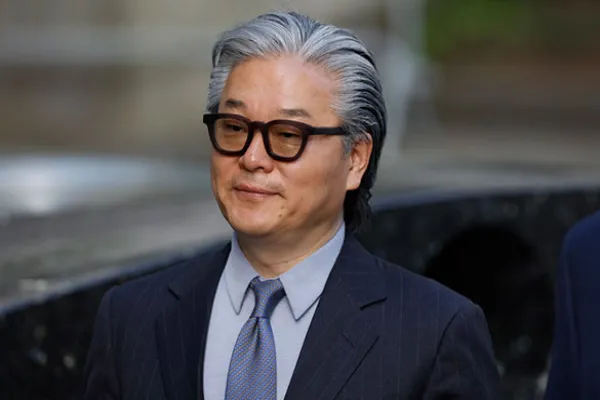For litigation finance firms, finding the right lawsuits to invest in requires quite a bit of time, effort, and capital.
Like other nascent investment strategies, high returns are the result of highly knowledgeable investors, of which there are few and far between.
But Eva Shang, co-founder of Legalist, is trying to change that. Her firm uses quantitative techniques and machine learning applications to find easy-to-manage deals in litigation finance, bankruptcy, and government receivables.
Founded in 2016, the firm now manages more than $650 million and is on track to hit $1 billion in assets under management by the year’s end. So far this year, the firm has built a board with ex-Nuveen and Canyon Capital executives and garnered investments from endowments, foundations, and insurers.
And the strategy is all about the technology. “Even though each of our strategies is hyper-targeted, our core thesis is that our technology allows us to scale across asset classes,” Shang said. She added that the strategy generates alpha by sourcing deals quickly across the databases it scours.
Sitting outside of a Midtown, Manhattan coffee shop, Shang pulled a laptop out of her backpack to demonstrate the firm’s proprietary technology. She dove deep into Legalist’s tech, peppering in anecdotes and even threw in a few memes during the conversation.
Legalist’s application crawls government databases, including Pacer, as well as more than 200 databases representing state courts and government contractors.
The program — which Shang’s team calls a “truffle sniffer” — looks for static variables like defendants or lawyers, as well as time series variables, which include the events associated with cases. The technology is looking for key litigation dates, such as “creditor motions” in a bankruptcy.
Then, machine learning comes in. The app classifies the data by the type of case, individual, and event, among other variables, creating a decision tree that ultimately leads to a decision on whether the firm will finance the case.
Once Legalist has identified the cases it finds attractive, the firm sends an automated and customized email to the parties in the case the firm wants to finance. These emails explain what litigation financing is and introduce the firm to potential loan recipients.
If those loan recipients are interested — and about 20 percent of those emailed are — Legalist’s underwriters get in contact with the lendees, and soon have a term sheet on the table.
“If we have data origination right, it’s much easier to send term sheets in a few weeks,” Shang said. “The deals we target are less hairy than our peers.”
There are, of course, still errors. Shang said the litigation fund has about an 80 percent success rate. But her team tries to limit potential losses with its standardized process.
Shang, as a recent Wall Street Journal profile pointed out, is different from many in the finance industry. She and her co-founder Christian Haigh launched the firm in 2016 as 20-year-old Harvard dropouts after completing Y Combinator, a startup accelerator program. Shang eschews “cutthroat” finance culture, saying she wants to “grow the pie,” not push others out for a slice of her own.
The Legalist co-founder is inspired by Rishi Ganti, the founder of Orthogon Partners, whose M.O. is discovering un-traded assets, then investing in them. But Ganti’s guiding philosophy goes well beyond niche assets.
“He basically says the way to get alpha in any kind of asset is to be there early where there’s no competition,” Shang said. “It’s like going to a little league game where you scout players. There’s no market yet.”
After launching Legalist, Shang set off on her first fundraise — bringing in $10 million from potential investors. “I don’t think I understood the challenge of raising a $10 million fund as a 20-year-old without investment experience,” Shang said. “It took me a full year to do it.”
By 2018, the firm had already started identifying attractive deals but had little capital to put to work. It partnered with a large, publicly-traded firm (not Burford Capital, Shang clarified), to make three co-investments and get the business off the ground.
The firm first focused solely on litigation finance and has since expanded into bankruptcy financing — particularly lower middle market debtor-in-possession loans — and government contracts.
“For any manager that starts off, the core question is can you scale,” Shang said. “There are a lot of very successful niche managers that never crack the institutional world, no matter how great their returns are.”
Expanding into new strategies has kept the firm growing without having to compete with litigation finance behemoths like Burford or Parabellum Capital.
Legalist now is raising its second bankruptcy fund and has filled the founders’ share class. The firm has raised capital from endowments, foundations, and insurers, among other investors.
The litigation financing fund is targeting a return of 20 percent net of fees, with a five-year lock-up period. Bankruptcy investments, meanwhile, target high-yield-like returns, with capital held for between four and five years. The firm’s government receivables fund is evergreen, but redemptions are available to investors, as the time horizon on those loans is quite short, Shang said.
Despite the recent downturn in the markets, Shang is optimistic.
“Litigation finance is definitely uncorrelated and counter-cyclical,” Shang said. “I know our IR team has been heartened by rising interest rates.”







